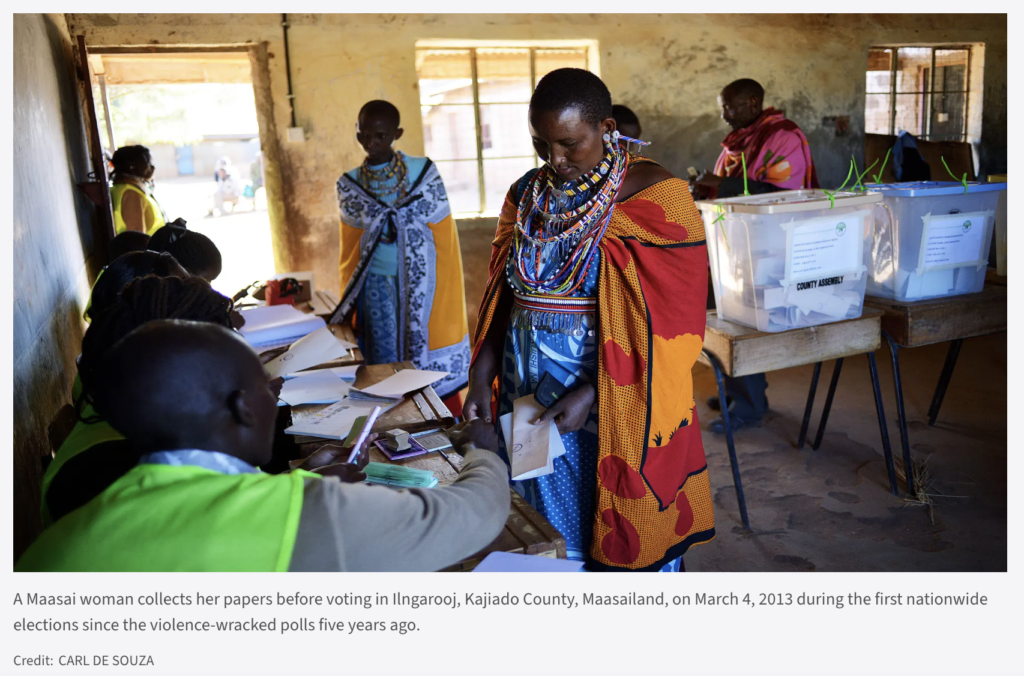GlobalPost sits down with Superintendent Seline Awinja on gender-based violence and times when “there is no womanhood and no manhood.”

Kenyan law enforcement officers look as several hundred Kenyan protestors march towards the police headquarters on October 31, 2013 in Nairobi to deliver a petition of over a million names demanding justice after men accused of brutally gang raping a schoolgirl were let free. (SIMON MAINA/AFP/Getty Images)
NAIROBI, Kenya — Seline Awinja, one of Kenya’s highest-ranking female police officers, smiles proudly as she recounts the ranks she’s advanced in her 26 years with the force: From constable to corporal to sergeant to senior sergeant to inspector to chief inspector — and now to superintendent of police for Nairobi’s Njiru district.
Awinja, 46, sits at a desk in a tin hut that serves as her command post. Plainclothes officers enter repeatedly to tell her about a dispute unfolding between armed thugs and a landowner over control over a nearby plot of land.
She fires back at them in Swahili, telling them to “bring their big guns” and hold the peace until a judge can be summoned to arbitrate. “Deal with them like a man,” she yells, and sends them off.
As the US military this year lifts its longtime ban on women in combat roles, a similar debate is unfolding within the Kenya Police. In the United States, female American soldiers and their allies argued the ban limited women’s ability to rise through the ranks into the military’s highest positions. In Kenya, a legacy of female officers serving in only secretarial roles has only partially faded: Today only 11 percent of Kenya’s 73,000 police officers are women, according to a United Nations estimate.
Recently, female police in Kenya have been called upon to staff ‘gender desks’ at local police stations to handle cases of sexual and domestic violence of the sort that Kenya’s male-dominated police force is notorious for failing to take seriously. Kenya made international headlines last month after police in Western Kenya set free three suspects in the gang rape of a woman known as “Liz” rather than investigate or charge them.
GlobalPost sat down with Awinja to ask what drove her to pursue a position of leadership that few of her female counterparts share — and how she approaches her role.
Read the full interview as it appeared at GlobalPost.



